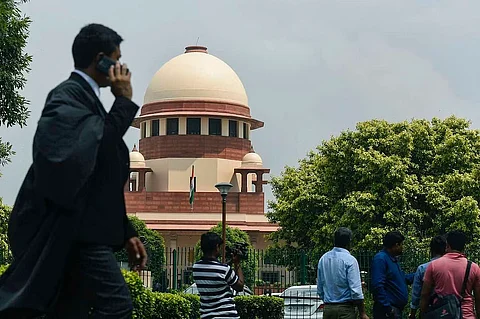

Follow TNM's WhatsApp channel for news updates and story links.
The Supreme Court, on Monday, September 15, ruled that political parties cannot be brought under the Sexual Harassment of Women at Workplace (Prevention, Prohibition and Redressal) Act, 2013, holding that membership in a political outfit does not constitute employment.
A Bench of Chief Justice of India BR Gavai and Justices K Vinod Chandran and Atul S Chandurkar was hearing a plea that challenged a 2022 Kerala High Court ruling that exempted political outfits from the ambit of the Act. The High Court had held that political parties are not “workplaces” under the law, as there is no employer–employee relationship with their members.
The petitioner, advocate Yogamaya MG, represented by Senior Advocate Shobha Gupta, argued that the Act was deliberately drafted with broad definitions of “employer,” “employee,” and “workplace” to ensure comprehensive coverage in line with the Court’s Vishaka judgment. Gupta stressed that the law also covers “aggrieved women” who may not be employed but still face harassment in an organised set-up.
The Bench, however, was unconvinced. “When a person enters a political party, it’s not a job; there is no payment,” Chief Justice Gavai observed, according to Live Law. The judges repeatedly asked how political parties could be defined as workplaces when no formal employment exists.
The Court warned that “subjecting political parties to the POSH Act would open a Pandora’s box and become a tool for blackmail.” The Bench concluded that the statutory scheme of the Act could not be stretched to cover political associations.
The plea had pointed to inconsistent practices across parties, noting that while CPI(M) has constituted internal complaints committees with external members, the structures within the BJP, Congress and AAP remain inadequate or unclear. The petitioner said this left women political workers without recourse in cases of harassment.
The Supreme Court nonetheless stood by its earlier approach. In December last year, a different bench had refused a similar plea and directed the petitioner to approach the Election Commission of India, which registers and regulates political parties. Monday’s order reaffirmed that the judiciary would not widen the Act’s ambit to cover politics.